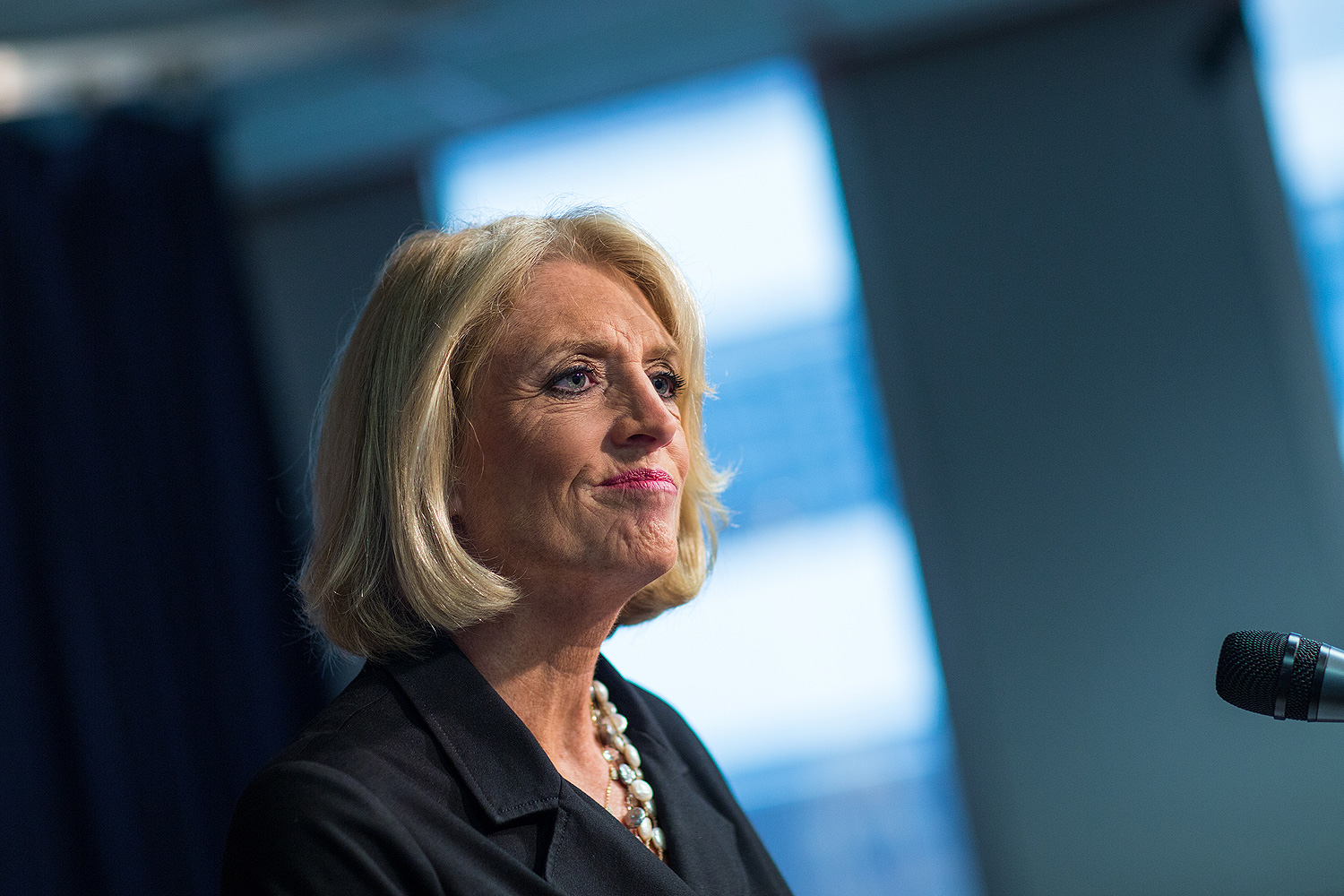Last week I did an update on the state's fiscal situation and its worsening in the absence of a budget and the drop in its income tax, including the troublesome fact that, even with a default austerity budget that doesn't include higher-ed funding and a large swath of human-services funding, we're still running a deficit in the billions. (Eastern Illinois just cut 200 positions and furloughed "all administrative and professional staff" for March.)
Yesterday, the Illinois comptroller, Leslie Munger—whose office is literally responsible for paying the bills, including which bills to pay and which to postpone—gave a dire but informative press conference with updates on the near-term future and its implications for the long term. "The devastation is well-documented. Nonprofit and social-service organizations have exhausted their credit lines, slashed staff and services, and some have shut their doors," Munger said. "Payments for mental-health, sexual assault, autism, respite care, and other services are not being made."
Court orders, consent decrees, and limited action by the assembly are getting many programs funded; "we estimate that we are paying 90 percent of the state's bills that were covered under last year's budget," Munger said.
But there's just not the money to do it, so after a brief period of progress in catching up on the state's debt, the status quo will drive it up again—in part because some of the court orders require the full funding of existing service levels. "We expect that the state, this year, will exceed last year's appropriations for the departments of Human Services and the Department of Health Care and Family Services by $1.2 billion. At the same time, revenues are expected to be down five billion dollars as a result of the sunset of last year's temporary tax increase."
Together, that would add $6.2 billion to the state's debt in fiscal year 2016.
What's to be done? Munger estimates that covering the state's bills with an income-tax increase alone would require going back up from the current rate of 3.75 percent, past the temporary peak of five percent, and up to seven or eight percent.
"I do believe that we are going to have to look at revenue improvements," Munger said. But regarding the doubling of the income tax, she added, "I don't know any legislator who would vote for that, or many businesses that would stay in Illinois for that."
Rauner has all but dared the Democratic not-quite-super-majority to override his veto of a tax hike that doesn't include any of his desired business-oriented reforms. If that doesn't come to pass, Munger previewed the likely scenario. "We must look for some reforms that would make businesses more competitive," Munger said, "so they can absorb some increase in taxes and still put people back to work."
It was just a press conference; Munger's not a legislator, and any specifics of a compromise are obviously far from in place. Even the compromise over John Cullerton's pension-reform plan is constitutionally uncertain. But looking at the tea leaves, the broadest outlines of a path forward seem to be aligning.



